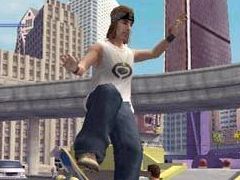You can trust VideoGamer. Our team of gaming experts spend hours testing and reviewing the latest games, to ensure you're reading the most comprehensive guide possible. Rest assured, all imagery and advice is unique and original. Check out how we test and review games here
Today Tony Hawk’s developer Neversoft finally closed its doors, having been merged with Infinity Ward two months ago. With it goes a studio that wasn’t always heralded as the biggest or best, but one that did, with the first three Tony Hawk’s Pro Skater games, craft some of the finest arcade sports titles of all time, creating a true pop-culture phenomenon in the process. Neversoft isn’t the most famous name in the world, but without its input, style, and accomplishment, it seems unlikely that ‘Tony Hawk’ would ever have become one.
Neversoft had been creating games long before the original Tony Hawk made its debut in 1999, having worked on Bruce Willis-starring Apocalypse (among others), but it was the skateboarding franchise that it will be remembered for. The potent mixture of its trick-attack gameplay combined with its punk sense of humour and musical taste led to a game that was as addictive as it was cool.
Tony was the video game zeitgeist at the turn of the millenium, enthralling non-players as well as dyed-in-the-wool gamers, those who knew what a Darkslide was and those whose closest brush with skateboarding was walking past Two Seasons. Its broad appeal lay in an accessibility which soon gave way to intricacy: those first few flips acting as a gateway drug to a series of tightly-wound mechanics that not only complemented each other, but rewarded experimentation and personal style. Its systems were complex, requiring dexterity and forward planning, but like its eponymous skater, applying them correctly and with bravery could yield moments of wonder.
In a lot of ways, the core appeal of Tony Hawk is contained in the series’ very first stage, the now-legendary Warehouse. It’s possible to complete all of the level goals in one run, from beating the pro score to locating the tapes and letters, etc, in the 2 minute time limit, and the stage is an almost perfect example of how to build a tutorial in games. It doesn’t tell you what to do, but by starting you off near a ramp, like a parent pushing their child along on a stabilised bike, it shows you. Tony, from the first second, gave players the initial momentum they needed. The rest came naturally.
I could talk for days about the first three Tony Hawk’s Pro Skater games, their myriad improvements on each other, their new tricks, skill systems, and soundtracks, as I’m sure anyone who grew up with these games could. But above and beyond its mechanical genius and sense of give-no-f***s style I remember it for the moments I played it with and against my friends: the tricks, the lines, the runs, the sense of competition that it fostered. I remember my friends Gary and Joe, the two best players I knew, engaging in a heated rivalry that at times seemed like it could boil over, culminating in them phoning me up (as I would invariably be with one or the other) to relay a boast of their latest scores.
It was, like GoldenEye or Halo, a game that came to define friendships for a whole generation of players, as in those early days of THPS until THPS3 you had to physically go and compete people locally. It was almost as good to watch as it was to play, and would invariably become the centrepiece of any night in. Tony Hawk’s 3 is the joint highest-rated PS2 game on Metacritic, a distinction it holds with GTA III. It’s not difficult, despite the obvious differences between the two series, to see the similarities they shared. Rockstar and Neversoft crafted worlds in which players had the freedom to create their own destinies, backed with a sense of cultural cool that was helped no end by a killer soundtrack.
Today, that soundtrack functions not just as something to listen to as you skate around, but something closer to Don Draper’s metaphorical time machine from the end of the first season of Mad Men: it’s impossible for me to hear No Cigar or Police Truck or Superman and not be instantly beamed back to the late 90s or early 2000s, to Joe or Gary’s or mine or wherever else we played it.
And if that’s not a definition of success, despite the closure of the studio, I don’t know what is. Thanks Neversoft. I’ll just leave this here.
